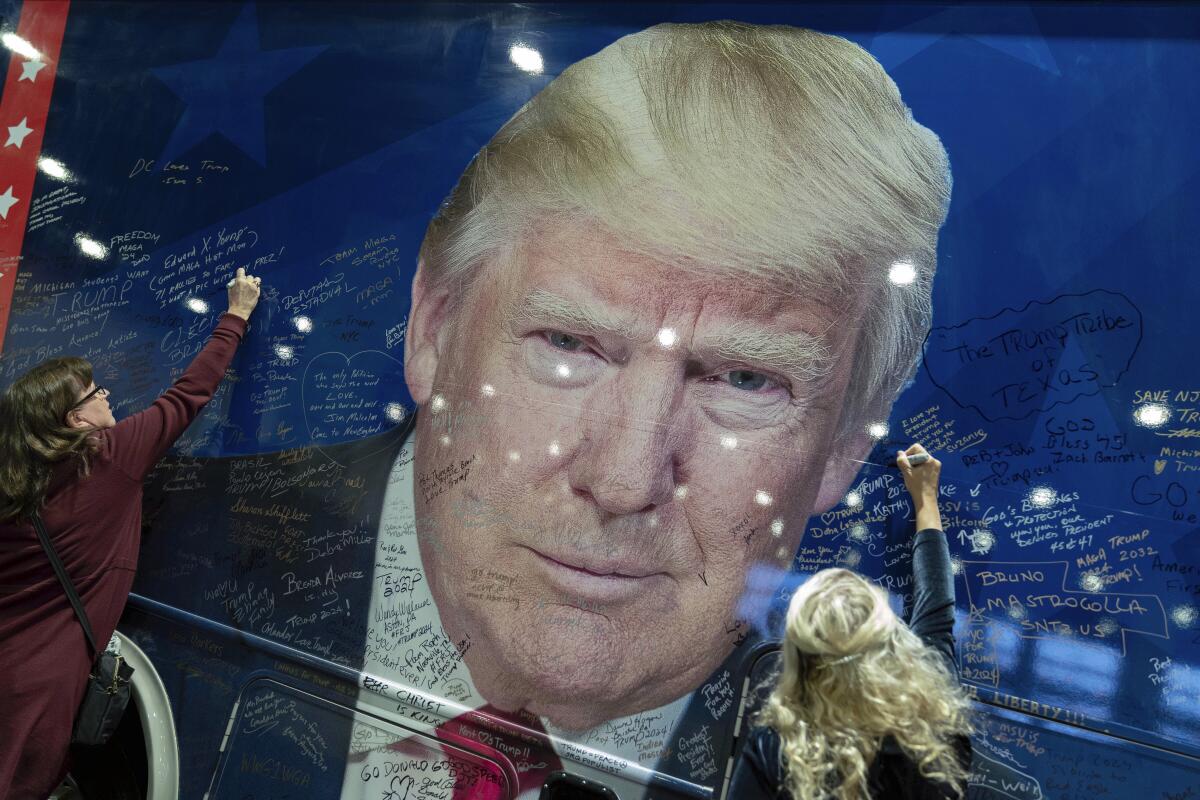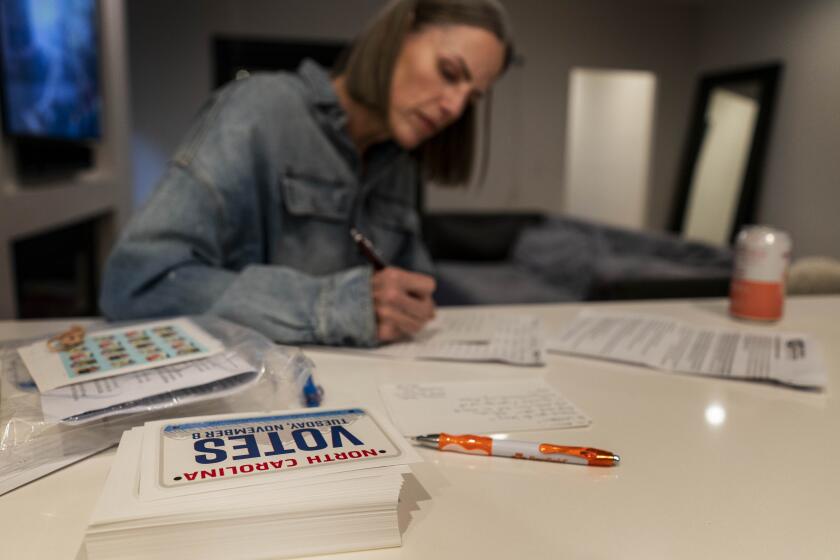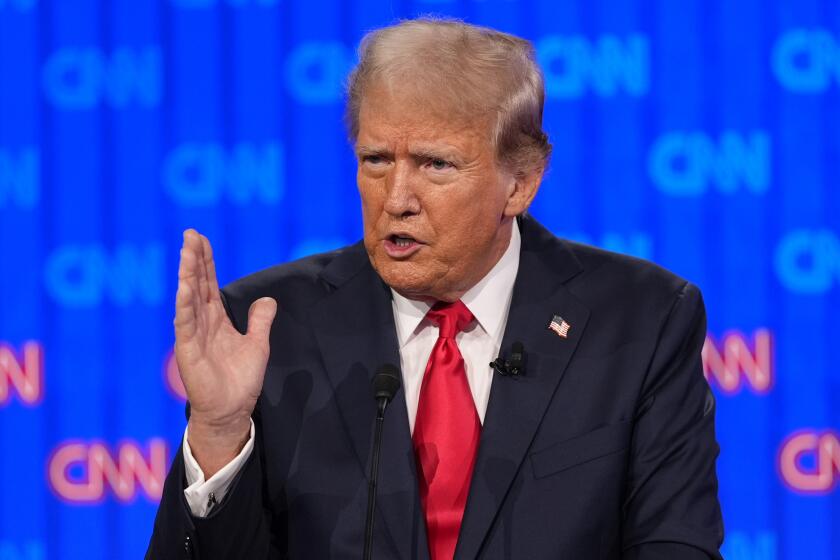Opinion: Do you remember what politics were like without Donald Trump? My students don’t

- Share via
Every year, I ask my political science students, “What is your earliest political memory?”
I pose the question to figure out what political and cultural moments have shaped them. Over the years, their answers have served mainly to help me think about the mix of perspectives in my classroom. But lately my students’ responses have made me rethink modern American politics.
Why? Because most of my students cannot remember a politics without Donald Trump at its center. Only a few can remember Barack Obama’s second inauguration, in 2012, and only vaguely.
This has serious implications for their political identities — and the nation’s.
The more campaign postcards I wrote, the more I started to wonder: Who were these people shirking their civic duty?
Most of today’s college students are 18 to 22 years old, so they were 9 to 13 when Trump elbowed his way onto the political stage in 2015. Having come of age in the Trump era, they think about politics very differently from the rest of us.
With both parties aggressively courting Gen Z voters, this could have a radical effect on the coming election. And it should have older voters thinking differently too.
One major difference among age groups is that these young voters barely knew the pre-MAGA Republican Party. Trump can still feel like an aberration to those of us who are older — a singular figure who hijacked the “true” GOP and remade it in his own image.
Non-MAGA America seethes at Trump’s lies, bluster and authoritarianism. But neither Biden nor any younger, healthier Democrat directly moves to shut down his appeal at its root — toxic whiteness.
That makes it possible for many MAGA-hating “Never Trumpers,” for example, to keep calling themselves Republicans. Groups such as the Lincoln Project, websites such as the Dispatch and politicians such as former Reps. Liz Cheney and Adam Kinzinger offer some of the most articulate and uncompromising anti-Trump takes. Most of these arguments come from folks of a certain age who still identify, in their hearts, as Republicans.
But for young voters, the idea of a different kind of Republican Party might as well be historical fiction. It feels as distant from them as the Whigs or the Federalists — a story that took place a long time ago in an America far, far away.
Even my students with traditionally Republican and conservative beliefs struggle to think of themselves as Republicans. They prefer to be known as independents, Libertarians or even Democrats.
Those who do call themselves Republicans do so because of Trump. As polls have repeatedly shown, the young people who support the former president are also overwhelmingly men.
This shift in perception is one reason it might be harder to de-MAGA-fy the Republican Party than a lot of Never Trumpers hope. Even when Trump finally departs the political scene on that golden escalator to the great beyond, he will have redefined the word “Republican” for a generation in a way that will be hard to undo.
My students have made me look at Democrats differently too. Those of us with pre-MAGA memories may compare the vibes and memes around the Harris-Walz ticket to the energy of Obama’s first presidential campaign. But most of today’s college-age voters were toddlers when Obama began promising “change you can believe in.”
For them, the Harris-Walz campaign’s positive momentum is far more than an echo of an earlier campaign. It’s a totally new way of thinking about politics — a revelation that elections can be about possibility. These vibes are different for them. And they are huge.
For the first time, many college-age voters are experiencing the joy and excitement that can come from joining others, sometimes in person, and committing to a shared vision of a better world. That is not a feeling that dissipates. It is a major driver of participation and action, as we’re seeing not just on TikTok but also in voter registration numbers.
So when people my age say Kamala Harris’ good vibes can’t last until the election, I acknowledge that might be true — for people my age.
But for the youngest voters in this election, those vibes might actually represent the deeper, seismic rumblings of a generation on the move. And I’m not so certain they will go away before this election, or even after it.
Gen Z voters hardly remember what came before Trump. Soon it may be harder to remember American politics without them.
Susan McWilliams Barndt is a politics professor at Pomona College.
More to Read
A cure for the common opinion
Get thought-provoking perspectives with our weekly newsletter.
You may occasionally receive promotional content from the Los Angeles Times.












